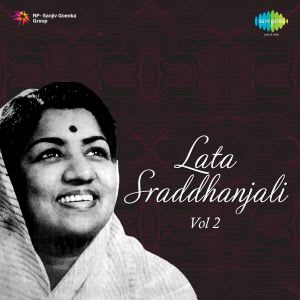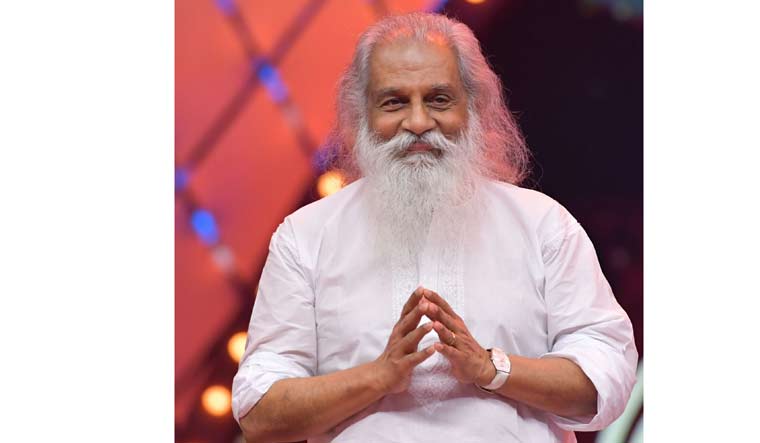Classical Hits - K. Yesudas is a Malayalam album released on May 2018. Classical Hits - K. Yesudas Album has 14 songs sung by K J Yesudas. Listen to all songs in high quality & download Classical Hits - K. Yesudas songs on Gaana.com. Classical Hits - Based on Carnatic Raaga - K. Chithra,K J Yesudas. Kannamoochchi Yaenada. Chithra, K J Yesudas. Chithra, K J Yesudas. Add to playlist Add to queue Go to Album Share Download. Chithra, K J Yesudas. Raaga Series – Raagam Thodi is a Carnatic classical music album, a garland kritis presented by Dr. Album begins with the kriti Swami Unnai, followed by a Muthuswami Dikshitar composition Mahaganapathim. Yesudas decorates this kriti with Kalpanaswarams and gamakas. Number of songs. As far as south Indian languages are concerned, Yesudas has rendered songs in Malayalam, Tamil, Kannada and Telugu. He has sung in Hindi also. Totally, he would have sung more than 30,000 songs.
Born In: Kochi, Kerala
Career: Classical Musician and Playback Singer
Nationality: Indian
Dr. K. J. Yesudas is one of the famous Indian classical musicians as well as a renowned playback singer. He has recorded numerous songs in many Indian as well as foreign languages. His contribution in promoting Indian music is immense. Thus he is known as the 'Cultural Ambassador of India'. Yesudas has sung in both Tamil and Hindi film industry, but is most famous for his Malayalam songs. He has been honored with many awards and titles and he continues to spin magic with his melodious voice. He has sung popular film songs, classical, Carnatic and devotional songs.
Early Life
Yesudas was born on 10th January, 1940, in Kochi (Kerala) as Katttassery Joseph Yesudas. His father was Augustine Joseph Bhagavathar, while his mother was Elizabeth Joseph. Yesudas started to receive training in Carnatic music at a very young age. His first Guru was his father Augustine Joseph Bhagavathar, a well-known theatre artist and a classical singer. After that, he joined the R.L.V. Music Academy in Thrippunithura for training. He later went to the Sree Swathithirunal Music Academy for higher studies. One of the most senior and respected performers of Kerala, Chembai Vaidyanatha Bhagavatar trained him in classical music. Yesudas won a gold medal at the age of seven at a local music competition in Kochi. He has recorded in many languages that include Hindi, Tamil, Kannada, Telugu, Bengali, Malayalam, Gujarati, Oriya, Marathi, Punjabi, Sanskrit, Tulu, Russian, Arabic, Latin and English.
Career
In the Middle East, Yesudas presented Arabic songs in Carnatic style. He also played a very important role in promoting Indian music in foreign countries by giving many performances. He began his career as a playback singer from the Malayalam movie 'Kaalpadukal'. In mid-1970, Yesudas started playback singing in the Bollywood. His first Hindi movie was 'Chhoti Si Baat'. But, he gave his voice first for the movie 'Jai Jawan Jai Kisan' (1971). He also gave his voice for many leading actors in Hindi cinema including Amol Palekar, Amitabh Bachchan and Jeetendra. In 2001, he sang for 'Ahimsa', an album in Sanskrit, Latin and English mixed with New Age and Carnatic music. His songs stand out not just for the melody but also for the versatility and style. Though Yesudas is an expert in Carnatic music, he also learnt classical music as he did not wanted to limit himself to only Carnatic music.
Contribution in Music
In the year 1970, Dr. K. J. Yesudas set up the 'Tharagini' a music company in Chennai. With this company, Malayalam songs were brought out with stereo effect. The studio still produces high quality recordings of Dr. K. J. Yesudas.
Awards and Accolades
Dr. K. J. Yesudas has been awarded with many awards. In 1989, he received the Doctorate degree from Annamalai University and in 2003, he received the D.Litt. degree from Kerala University. He has been awarded with the title 'Asthana Gayakan' (Official Singer) by government of Kerala. He has also received 'Sangeet Natak Academy Award' (1992), 'Sangeetha Sagaram' (Ocean of Music) in 1989, 'Padma Sri' (1973), 'Sangeetha Chakravarthy' (Music Emperor) in 1988, 'Sangeetha Raja' (Music King) in Chembai (1974), 'Padma Bhushan' (2002), 'Sangeetha Ratna' (Music Jewel), 'Swathi Ratnam' (Swathi Jewel), 'Sapthagiri Sangeetha Vidwanmani' (2002), 'Bhakti Sangita Geetha Sironmani'(2002), 'Kalaimamani' Award by Government of Tamil Nadu, 'Gaana Gandharva', 'Star ofI ndia' Award by Lt. Governor of Pondicherry, 'National Citizens Award' (1994). He has also been declared as a Senate member in the International Parliament for Safety and Peace. He has been given honorary award for 'Outstanding Achievements in Music and Peace' by UNESCO (1999), twenty three times State Film Awards for the best Playback singer by Government of Kerala, five times State Film Awards for the best Playback singer by Government of Karnataka, eight times for the best Playback singer by Government of Tamil Nadu, three times State Film Awards for the best Playback singer by Government of Andhra Pradesh and seven times the National Film Awards for the best Playback singer by Government of India.
Personal Life
Yesudas married Prabha his devoted fan of many years. The couple has been blessed with three boys Vinod, Vijay and Vishal. Vijay Yesudas is a budding musician who won the Kerala State Film Award for Best Male Playback Singer in 2007. The family is currently settled in Chennai and Trivandrum. Yesudas also owns estates in Fort Lauderdale, Florida, USA and Flower Mound, TX, USA for personal and business reasons.
Timeline
1940: Born in Kochi, Kerala
1970: Entered the Bollywood and set up a music company called 'Tharagini'
1971: Gave his voice to first Hindi film 'Jai Jawan Jai Kisan'
1973: Padma Sri
1974: Sangeetha Raja (Music King), Chembai
1988: SangeethaChakravarthy (Music Emperor)
1989: Doctorate by Annamalai University and SangeethaSagaram (Ocean ofMusic)
1992: SangeetNatak Academy Award
1994: National Citizens Award
1999: Honorary award for 'Outstanding Achievements in Music and Peace' by UNESCO
2001: Sang for 'Ahimsa', an album in Sanskrit, Latin and English mixed with New Age and Carnatic music
2002: Padma Bhushan,SapthagiriSangeethaVidwanmani and Bhakti SangitaGeethaSironmani
2003: D.Litt. by Kerala University, Kerala.
Best Of Yesudas Songs
The following is an article i posted 6 months
ago on alt.culture.kerala. I didn't get any response
there - I thought I'd post here.
Basically, the post was a reply to someone's query
about Yesudas' skill in Carnatic music - the following
was my reply.
Hoping to stimulate some discussion:

Yesudas Songs Mp3
Unni

ps: Please don't flame me - I am not trying to start a
war - just a discussion.

Kj Yesudas Carnatic Songs Free Download
I am a fan of a variety of musicians including all the
greats like Chembai, GNB, KVN, MS, MLV, and Ariyakuddi.
I am also a fan of Yesudas. This has been a source of eternal
conflict with me and the establshment! My sincere belief is
that he has a voice that is superb and he has a great
deal of creativity. Most of his critics concede that his
voice is great, but they complain about his creativity,
knowledge of music, etc. The famous critic Subbudu
criticized Yesu's Thaalaam in a concert and suggested
that Yesu 'has a wonderful voice, but should take two
years off to learn Karnatic music' Naturally, Yesudas
refuses to perform if Subbudu is in the audience.
So, let's examine the points on which Yesu is criticized
and let's see what we have:
Thaalam: People say yesu's sense of Thaalam is not good.
I personally talked to no less an authority than
Guruvayoor Dorai (the great Mrdangist ) about this point.
He says his Thaalam is great. I think this should be
obvious, if you hear him sing the Panthuvarali Krithi
Raghuvaranannu - he doesn't miss a beat.
Shruthi: People say he loses the Shruthi - shruthi is
not correct, etc. Dorai stated 'yesudas has one of
the best senses of Shruthi'. Karnatic music is a
medium in which vocalists are notorious for losing
the Shruthi - Semmengudi - the doyen of Karnatic
music makes it a point to be off Shruthi.
I personally feel Yesudas sense of Shruthi is great and
that film singing has helped it. People who hear of
film song, won't tolerate it being out of tune, people
who listen to Karnatic music tolerate a few klunker
notes in the name of Gamakhams or the Bhava of the artist.
Bhava: People say he doesn't have Bhava. I suggest to
people who believe that to go and listen yesu's
rendition of Karuna Cheivan in Yedhukulakambodhi.
If they don't change their mind after that - they
have got serious problems.
Creativity: Another intangible. I could say listen
to yesudas's Pakala Nilabadi in Karaharapriya or
Vanee Vagadeeshwari and say listen to the creativity.
People will just argue that he doesn't respect
tradition.
Tradition: The last point brings me to respect for tradition.
Yesudas is constantly learning new Krithis ( he
has an old teacher in his house). His concerts are
full fledged affairs with Varanams, the requisite
Krithiis, RTPS, thilanas, and Mangalam. I think he does
a good job.
So, why is Yesudas criticized:
1) I believe there is a definite state bias involved.
Madras controls the Karnatic music scene. An example
of this bias, is when I atteneded the recent
Chicago Thyagaraja Utsavam. In the handout
there was an article on classical music in Tamil
films. Yesudas' name was mentioned no where - even
Sounderajan's name was mentioned. I can understand
their not liking Yesudas's regular Karnatic fare -
but they shouldn't dismiss his light classical music
- or his classical songs in films.
2) Reluctance to change. People will say that he sings
krithis in Arabic and that this bad. I disagree.
Music like other aspects of culture is not a stagnant
entity - it must change and adapt to survive. It is
not that he just sings songs in Arabic. Rather, he
is expanding the scope of Karnatic music - he still
does the Thyagaraja, Dikshitar, Shyama Sastri,
Swathi Thirunal, etc songs.
Your opinions.
Unni
